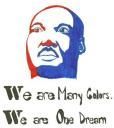
Having weathered a storm of controversy from the Indian community over the novel’s use of the word “pariah”, the Education Ministry now faces Chinese calls to drop the “racist” book from the Form Five Bahasa Malaysia syllabus.
In a statement today, Chinese associations from across Malaysia said the book was not only offensive to Indians but Chinese as well, as it depicted the character Kim Lock as a “miserly opium addict and callous adulterer” and his son, Cing Huat, as “cunning, greedy, unscrupulous and someone who would happily sell his daughters”.
“‘Interlok’ in its totality propagates the ideology of ketuanan Melayu. In our considered opinion, this novel is not only unhealthy but an insidious poison,” the statement said.
 “In fact, ‘Interlok’ is barely a step away from the Biro Tata Negara (BTN) brainwashing that promotes racism and disunity. ‘Interlok’ conveys the central message that Chinese, Indian and other minorities are second-class citizens in addition to perpetuating the divisive notion of a host community (the Malays) versus foreigners (‘bangsa asing’ Cina dan India).”
“In fact, ‘Interlok’ is barely a step away from the Biro Tata Negara (BTN) brainwashing that promotes racism and disunity. ‘Interlok’ conveys the central message that Chinese, Indian and other minorities are second-class citizens in addition to perpetuating the divisive notion of a host community (the Malays) versus foreigners (‘bangsa asing’ Cina dan India).”
The groups also condemned the “major thread” in the book, which depicts the Chinese “cheating and oppressing” Malays or as “nasty and immoral” communist guerrillas.
The statement was signed by the Kuala Lumpur and Selangor Chinese Assembly Hall (KLSCAH), LLG Cultural Development Centre, Malaysian-China Chamber of Commerce, the Federation of Chinese Associations Johor, the Penang Chinese Town Hall and 40 others, including the Malaysian Consultative Council of Buddhism, Christianity, Hinduism, Sikhism and Taoism (MCCBCHST), Saya Anak Bangsa Malaysia (SABM) and several Indian organisations.
Some excerpts appended as evidence of the book’s alleged racism include:
* “We eat anything. Roots if we can get them. We beg. We steal. We don’t have a daughter. If we have a daughter, we can sell her.” (Kim Hock, pp 119-120)
* Kim Lock takes Mei Hwa to smoke opium and has sex with her every time they meet like that. (p 200)
* In a big and strange city like this, people cannot be kind, if they are kind they can’t be rich. Here money becomes the measure. In this world, money is the number two God. (pp 155-156)
* “Cina Panjang says all that land rightfully belongs to him. The cows we kept are also his. My father pawned it to him.” (p 88)
* Seman said he gave all the land to Cina Panjang, and the Chinese man then asked Seman to leave the kampung. (p 92)



 (Former Malacca chief minister Abdul Rahim Thamby Chik, businessman Shazryl Eskay Abdullah and Pertubuhan Pribumi Perkasa Malaysia (Perkasa) treasurer Shuib Lazim, have admitted that they were part of the 'Datuk T' trio responsible for keeping and screening the video to members of the media at Carcosa Seri Negara last week.)
(Former Malacca chief minister Abdul Rahim Thamby Chik, businessman Shazryl Eskay Abdullah and Pertubuhan Pribumi Perkasa Malaysia (Perkasa) treasurer Shuib Lazim, have admitted that they were part of the 'Datuk T' trio responsible for keeping and screening the video to members of the media at Carcosa Seri Negara last week.) The revelations of a former director-general of the Anti-Corruption Agency, Shafee Yahaya (right), during Anwar's trial throws light on the interference of the executive in the functions of the ACA.
The revelations of a former director-general of the Anti-Corruption Agency, Shafee Yahaya (right), during Anwar's trial throws light on the interference of the executive in the functions of the ACA.  The Malaysian media, particularly the mainstream media's reporting of the ongoing sodomy case and screening of a sex video obviously favours the proprietors of the media. The media owners are primarily political parties in the ruling coalition. I have yet to see an editorial condemning the use of sex by the state to kill political opponents. The mainstream media appears to have gone into damage control mode to protect those who screened the sex video.
The Malaysian media, particularly the mainstream media's reporting of the ongoing sodomy case and screening of a sex video obviously favours the proprietors of the media. The media owners are primarily political parties in the ruling coalition. I have yet to see an editorial condemning the use of sex by the state to kill political opponents. The mainstream media appears to have gone into damage control mode to protect those who screened the sex video.











 KUALA LUMPUR, Mar 23 — Ruling Datuk Seri Anwar Ibrahim’s 2008 arrest for sodomy to be legal, the High Court here today reversed its earlier decision to exclude evidence obtained following the opposition leader’s detention then.
KUALA LUMPUR, Mar 23 — Ruling Datuk Seri Anwar Ibrahim’s 2008 arrest for sodomy to be legal, the High Court here today reversed its earlier decision to exclude evidence obtained following the opposition leader’s detention then.